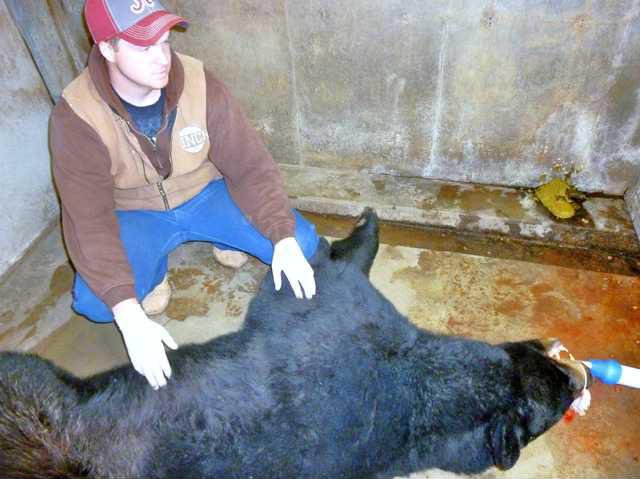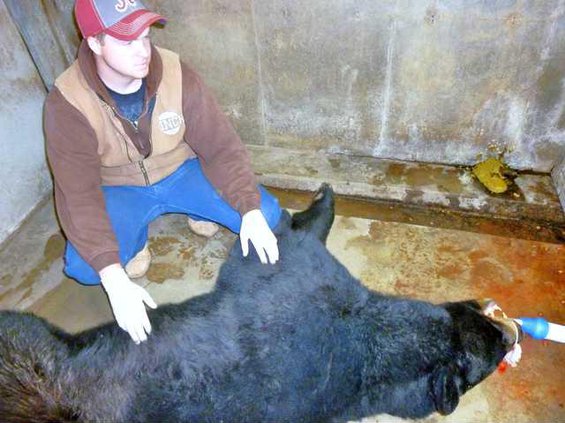Bonnie the black bear paced around her outdoor exhibit area Wednesday at Great Bend’s Brit-Spaugh Zoo, seeming to miss her mate, Clyde. The male bear was inside the cages with zoo staff, out of sight as it received a routine physical exam.
Although the bear had been knocked out with a tranquilizer, Zoo Curator Marge Bowen monitored security, keeping doors shut and a loaded shotgun within reach. But all went well as the veterinary team led by Dr. Mike Malone collected samples of blood, urine and feces; physically tested Clyde’s range of motion; and cleaned the bear’s teeth.
An infection was found in the teeth, and Malone had to pull one of the 7-year-old bear’s incisors. During animal physicals that take place almost every week at the zoo, dental problems are fairly common. After Bowen joined the zoo staff a little over a year ago, she began feeding some animals bones in an attempt to reverse that trend. "In the wild, carnivores chew bones to keep their teeth cleaned," she explained.
While he was asleep, Clyde was also rolled onto a scale, showing his weight to be 450 pounds. That is the bear’s normal spring weight, Bowen said. "By fall he’ll probably be close to 500."
Black bears are the smallest and most common species of bear, according to zoo information. There are approximately 900,000 in North America; they can be found in every Canadian Providence except Prince Edward Isle, and in at least 40 of the U.S. states.
Up to 85 percent of their diet consists of vegetation. They are also fond of honey, and in spite of their size they will climb a tree to get it. They also eat insects, bees, yellow jackets, ants and their larvae. Black bears will also catch salmon if available, hunting at night because the fish can see their black fur in the daylight.





